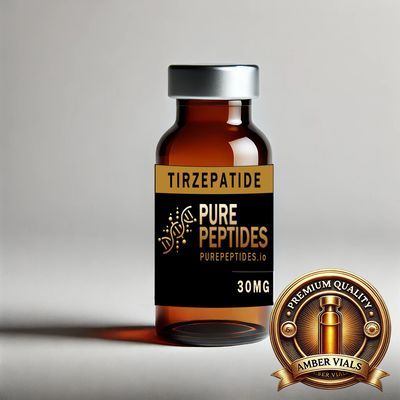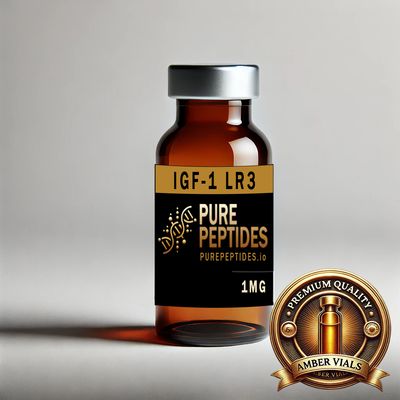Peptide Patch Store
🔴Cagrilintide | 5mg 🏆 Amber Edition

CARGRILINTIDE AMBER EDITION
| Unit Size | 5 mg/vial |
| Unit Quantity | 1 Amber Vial |
| Molecular Formula | C107H158N32O26 |
| Molecular Weight | 2370.6 g/mol |
| Sequence | LINK |
| Appearance | White Powder |
| Peptide Purity | >98.1% |
| Solubility | Soluble in water or 1% acetic acid |
Cagrilintide is a synthetic peptide analogue of the naturally occurring hormone amylin, designed to target appetite regulation and energy balance. Amylin is co-secreted with insulin by pancreatic beta cells in response to food intake, playing a critical role in controlling postprandial glucose levels, gastric emptying, and satiety. Cagrilintide mimics amylin’s activity by binding to amylin receptors located in the brain, particularly in the area postrema, which is involved in appetite control.
Cagrilintide works by slowing gastric emptying, promoting early satiety, and reducing overall food intake. These effects make it a promising therapeutic candidate for the management of obesity and related metabolic disorders. In clinical trials, Cagrilintide has shown significant potential for weight loss, particularly when used in combination with GLP-1 receptor agonists like semaglutide, enhancing both agents' effects on appetite suppression and metabolic regulation.
The mechanism of action involves the activation of amylin receptors, which are G-protein-coupled receptors (GPCRs). This leads to the modulation of intracellular signaling pathways that influence appetite regulation, food reward behavior, and gastrointestinal motility. By delaying gastric emptying and prolonging the sensation of fullness, Cagrilintide helps reduce caloric intake, leading to sustained weight loss over time.
Due to its long-acting nature, Cagrilintide offers an advantage over native amylin, which has a short half-life. The peptide has been modified to increase its stability and half-life, allowing for once-weekly dosing in patients. This makes it a more practical option for long-term management of obesity and other metabolic conditions.
In addition to its weight loss benefits, Cagrilintide has shown promise in improving glycemic control by moderating postprandial glucose spikes, making it a potential adjunct therapy for individuals with type 2 diabetes. Its ability to act synergistically with other metabolic peptides, such as GLP-1 receptor agonists, highlights its versatility and therapeutic potential.
Overall, Cagrilintide represents a novel and effective tool in the management of obesity and metabolic disorders, offering both weight reduction and glycemic control benefits through its targeted action on amylin receptors and appetite regulation.





